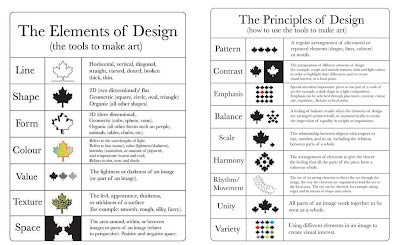Cut the us vs.them and why don't we all start caring again...
Sharing a
How to better connect and communicate with your employees.
By Mark Eagle

Clear internal communication is absolutely essential for a business to function. It prevents confusion about tasks and goals. It also contributes significantly to positive employee engagement with the company and with each other, therefore making for a more productive team.
The biggest obstacle to great communication is the manager/employee barrier, where managers are worried about becoming too friendly with people they are in charge of, and employees find it difficult to relate to those they perceive to possess more authority than they do. To break down this barrier, try implementing these ten tips.
Being a person that work out the home/studio....I'm totally not in tune with this whole thing..it bothers me I hear more of this coming from the men folk in our house and other people in a 9-5 atmosphere they have to deal with these kind of bosses..The bosses with fear about losing authority. How does this work well?
Email can also be easily misconstrued quite. As “words on a page or screen lack the context, tone and nonverbal cues that help people understand your meaning in person. When in doubt, talk face-to-face.”
Old School...is these happening? I would thinking so...
Be sure to listen to the response. Don't finish other people's sentences or second guess what they're going to say. You just might learn something.
I've been hearing more and more about how people in their job are unhappy and are being treated with less and less respect...after September 11 when our country was violated we came together... then the economy tanked and we separated and fear seeped in and feed us human beings...people. I've watched this happen among people all around me and might they feel they will lose their jobs so the us vs. them was OK to feed us....We are all people trying to live and make our life have meaning ...what kind of meaning is this...? Why are we in fear all the time? I really wish that we as humans could change this on all levels. We need each other so don't hide behind a screen...get out this next year meet people face to face not just in the job but with everyone....
This past week because of the Holiday's I meet with more friends and had lunch and visited and seen how they are doing "it's been great" if any good intention where to be set I would like to do more of that...book clubs, lunch with friends, my art tribe meetings, other spiritual meeting where I see people then see the screen. The time it takes to spend with others is more valuable to our well being then to quickly hit a button...Balance is all things, internet has us reaching people would never have but it' also has us disconnecting on levels that cause isolation and we lose the most important things and what really matters. We need each other on so many different levels.
How to better connect and communicate with your employees.
By Mark Eagle
Clear internal communication is absolutely essential for a business to function. It prevents confusion about tasks and goals. It also contributes significantly to positive employee engagement with the company and with each other, therefore making for a more productive team.
The biggest obstacle to great communication is the manager/employee barrier, where managers are worried about becoming too friendly with people they are in charge of, and employees find it difficult to relate to those they perceive to possess more authority than they do. To break down this barrier, try implementing these ten tips.
Being a person that work out the home/studio....I'm totally not in tune with this whole thing..it bothers me I hear more of this coming from the men folk in our house and other people in a 9-5 atmosphere they have to deal with these kind of bosses..The bosses with fear about losing authority. How does this work well?
Hold regular one-on-one meetings
Build individual relationships with your team, free from distractions. That includes closing your office door, putting the computer to sleep and keeping mobiles on silent Encourage your employees to speak freely with you away from the rest of the team. You will probably find them opening up more than they might within the group, and it will allow you to learn what they think of their work as well.Make time for a chat
It can be difficult to have a non-work conversation at work.Try and make time to chat with your staff. One way to do this is to have a 15-minute team huddle at the beginning of the day to see how everyone's doing. This allows you to relate to your team as people, rather than simply as employees.Talk face-to-face
Email may have become the default method of workplace communication, but it also creates an unexpected barrier because you are no longer communicating face-to-face. It may be fast, convenient and mean that communications are in writing and easily surfaced if required, but nothing builds relationships like in-person interaction.Email can also be easily misconstrued quite. As “words on a page or screen lack the context, tone and nonverbal cues that help people understand your meaning in person. When in doubt, talk face-to-face.”
Old School...is these happening? I would thinking so...
Ask open-ended questions
Open-ended questions provide an opportunity for you to hear everything someone has to say, rather than just zeroing in on what you want to know. They're also an invitation for the other person to talk.Be sure to listen to the response. Don't finish other people's sentences or second guess what they're going to say. You just might learn something.
Be open with your employees
Trust is quickly rewarded. Be open with your employees about what's going on in the company. It will help break down any 'us vs. them' mentality and make employees feel more included in the organization as a whole, as well as more valued by you for placing your trust in them.Meet fears head-on
The biggest barrier to effective communication is fear. Let your employees know how important their feedback and ideas are, and assure them that a wrong word won't result in loss of confidence, or worse, disciplinary action. Address any concerns they have with the organization or their jobs in an honest, straightforward manner.Create formal feedback processes
Suggestion boxes may seem hackneyed, but implementing a process where employees can offer feedback gives a clear signal that critical input is welcome. Offering anonymity may be necessary to remove the fear of repercussions for saying the wrong thing, especially in the early stages.Reward successful input
Actively reward successful input. This can be as little as taking the time to thank employees for contributions, or could be more formalized, like awarding an employee a trophy when there input solves a problem. Public recognition can encourage others to put ideas forward.Take feedback seriously
Even if you disagree, be sure to take all feedback seriously. You want to create a culture of openness where your employees feel comfortable expressing themselves. There's no quicker way of destroying that culture than dismissing valid, sensible input when it comes.Develop a coaching culture
There are innumerable benefits to developing a coaching culture, not least of which is fostering a more collaborative approach to problem solving. “If people come to their managers with problems, those managers should always be asking questions – 'Why?' 'How can we resolve this?'” A coaching approach makes employees feel more like they're working with you rather than for you.I've been hearing more and more about how people in their job are unhappy and are being treated with less and less respect...after September 11 when our country was violated we came together... then the economy tanked and we separated and fear seeped in and feed us human beings...people. I've watched this happen among people all around me and might they feel they will lose their jobs so the us vs. them was OK to feed us....We are all people trying to live and make our life have meaning ...what kind of meaning is this...? Why are we in fear all the time? I really wish that we as humans could change this on all levels. We need each other so don't hide behind a screen...get out this next year meet people face to face not just in the job but with everyone....
This past week because of the Holiday's I meet with more friends and had lunch and visited and seen how they are doing "it's been great" if any good intention where to be set I would like to do more of that...book clubs, lunch with friends, my art tribe meetings, other spiritual meeting where I see people then see the screen. The time it takes to spend with others is more valuable to our well being then to quickly hit a button...Balance is all things, internet has us reaching people would never have but it' also has us disconnecting on levels that cause isolation and we lose the most important things and what really matters. We need each other on so many different levels.








I've been having these thoughts for quite a while. You've articulated them perfectly. I've done the same -- gradually built connections outside my 4 walls and beyond social networking. A monthly volunteer group meeting at my house has become a group of cherished friends. We've networked with the local animal welfare organizations. My husband and I joined a church for the first time in 40 years. I don't even remember how to "do" church, but my age and experience tell me that it's all about being a caring community, and it doesn't matter whether or not we believe exactly what they do, or that we agree about politics. (Now I wish I could do this with my extended family too. Maybe I can. I'm trying.)
ReplyDeleteI shared this all with my young adults that still live at home...(all of them still-we love it) and as my oldest said...it can start with us...and that's the truth...when we take action to better and balance ourselves other see our happiness and well being and wonder what we are doing. Well that happens to me when I see an elder and witness their essence and fondly wonder and then I'm inspired. Great to hear from ya Martha.
ReplyDelete